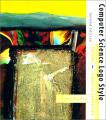
Rough set data analysis: A road to non-invasive knowledge discovery
by Ivo Düntsch, Günther Gediga
Publisher: Methodos Publishers (UK) 2000
ISBN/ASIN: 190328001X
ISBN-13: 9781903280010
Number of pages: 108
Description:
This is not the first book on rough set analysis and certainly not the first book on knowledge discovery algorithms, but it is the first attempt to do this in a non-invasive way. In this book the authors present an overview of the work they have done in the past seven years on the foundations and details of data analysis. It is a look at data analysis from many different angles, and the authors try not to be biased for - or against - any particular method. This book reports the ideas of the authors, but many citations of papers on Rough Set Data Analysis in knowledge discovery by other research groups are included as well.
Download or read it online for free here:
Download link
(1.1MB, PDF)
Similar books
 Computer Science Logo Style
Computer Science Logo Styleby Brian Harvey - The MIT Press
This series is for people who are interested in computer programming because it's fun. The three volumes use the Logo as the vehicle for an exploration of computer science from the perspective of symbolic computation and artificial intelligence.
(20228 views)
 The Fourth Paradigm: Data-Intensive Scientific Discovery
The Fourth Paradigm: Data-Intensive Scientific Discoveryby Tony Hey, Stewart Tansley, Kristin Tolle - Microsoft Research
The Fourth Paradigm, the collection of essays expands on the vision of pioneering computer scientist Jim Gray for a new, fourth paradigm of discovery based on data-intensive science and offers insights into how it can be fully realized.
(17765 views)
 Computer Science: Abstraction to Implementation
Computer Science: Abstraction to Implementationby Robert M. Keller - Harvey Mudd College
This book is intended for a second course in computer science, one emphasizing principles wherever it seems possible. It is not limited to programming, it attempts to use various programming models to explicate principles of computational systems.
(23897 views)
 Introduction to High-Performance Scientific Computing
Introduction to High-Performance Scientific Computingby Victor Eijkhout - University of Texas
A computational scientist needs knowledge of several aspects of numerical analysis and discrete mathematics. This text covers: computer architecture, parallel computers, machine arithmetic, numerical linear algebra, applications.
(13852 views)